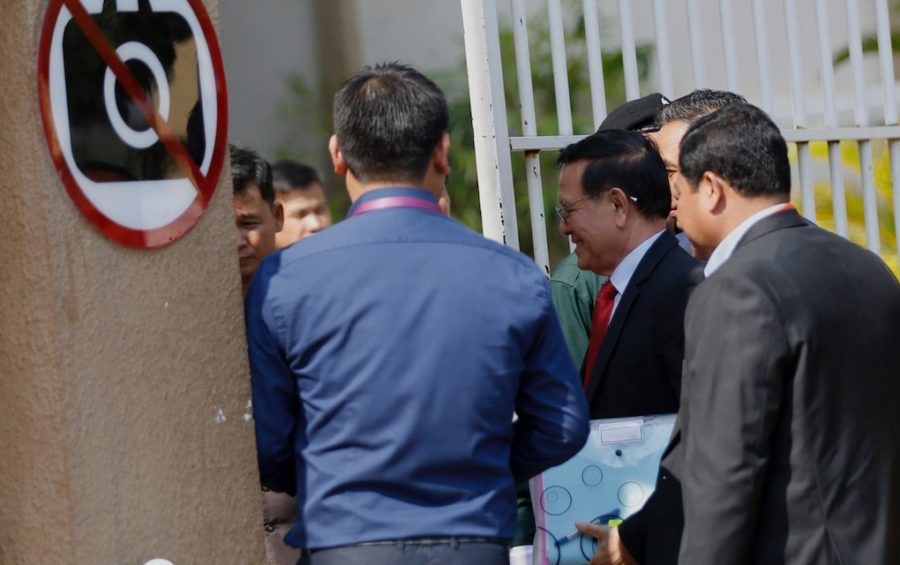Kem Sokha argued in court on Thursday that his political and NGO activities adhered to democratic and human rights principles, and therefore would not be a crime under the charge of conspiring with a foreign power, according to his lawyers.
Sokha, leader of the dissolved main opposition CNRP, faces up to 30 years in prison for the charge, which is defined in the Criminal Code as having a secret agreement with a foreign state to foment hostilities or acts of aggression against Cambodia.
Speaking to reporters outside the Phnom Penh Municipal Court, defense lawyer Meng Sopheary said Sokha continued to be questioned about his activities from 1993, when he joined politics, to 2007, when he returned to politics after a five-year stint as founder of the Cambodian Center for Human Rights (CCHR).
“My client’s activities are all in line with the law. He is a democrat. He adhered to human rights and democratic principles, so he has not done anything that caused a loss for the national benefit,” Sopheary said.
She added that the crime he is accused of committing from 1993 to 2007 did not exist in Cambodian law until 2010, when the 2009 Criminal Code came into force. The earlier 1992 UNTAC criminal law did not contain charges related to treason.
Sopheary also claimed that the government’s video evidence against Sokha had been edited to convey a different meaning. She added that testimony on video was not enough.
“To charge with conspiracy with a foreign power we [must] have secret documents, contracts or
agreements,” she said.
Pheng Heng, another of Sokha’s lawyers, said his client had been again questioned about the sources of CCHR’s funding, and argued that receiving support from U.S. donors USAID and democracy-building organization the International Republican Institute (IRI) was entirely legitimate.
Several government projects were also funded by USAID, Heng said.
“These are legal institutions. It is not black money. It is not money to overthrow the government or money to conduct conspiracy with a foreign power,” he said.
Sokha was arrested in September 2017 for allegedly working with the U.S. to overthrow the government, and is finally facing trial more than two years later. His case has drawn international interest and has been frequently criticized as politically motivated, with both the U.S. and E.U. urging that the case be dropped.
Ky Tech, a lawyer representing the government, said the trial still had a long way to go. He reiterated that the case was a criminal one, not political.
“What the result will be, we will see together in the future. We have a lot more evidence,” Tech said. “We will wait and see what decision will be made for the accused, Kem Sokha, in the end.”
The trial will continue next week on January 22 and 23.












